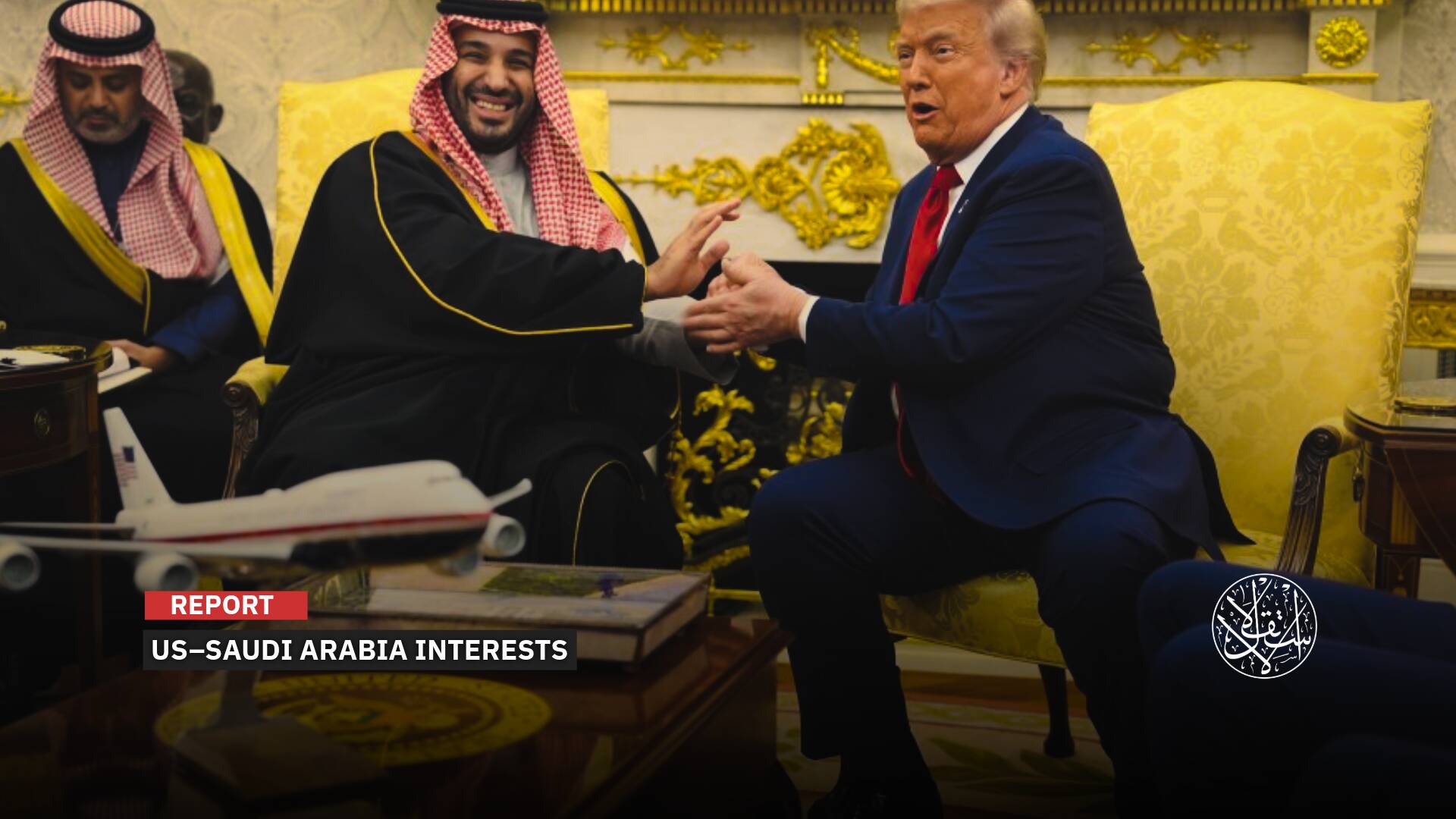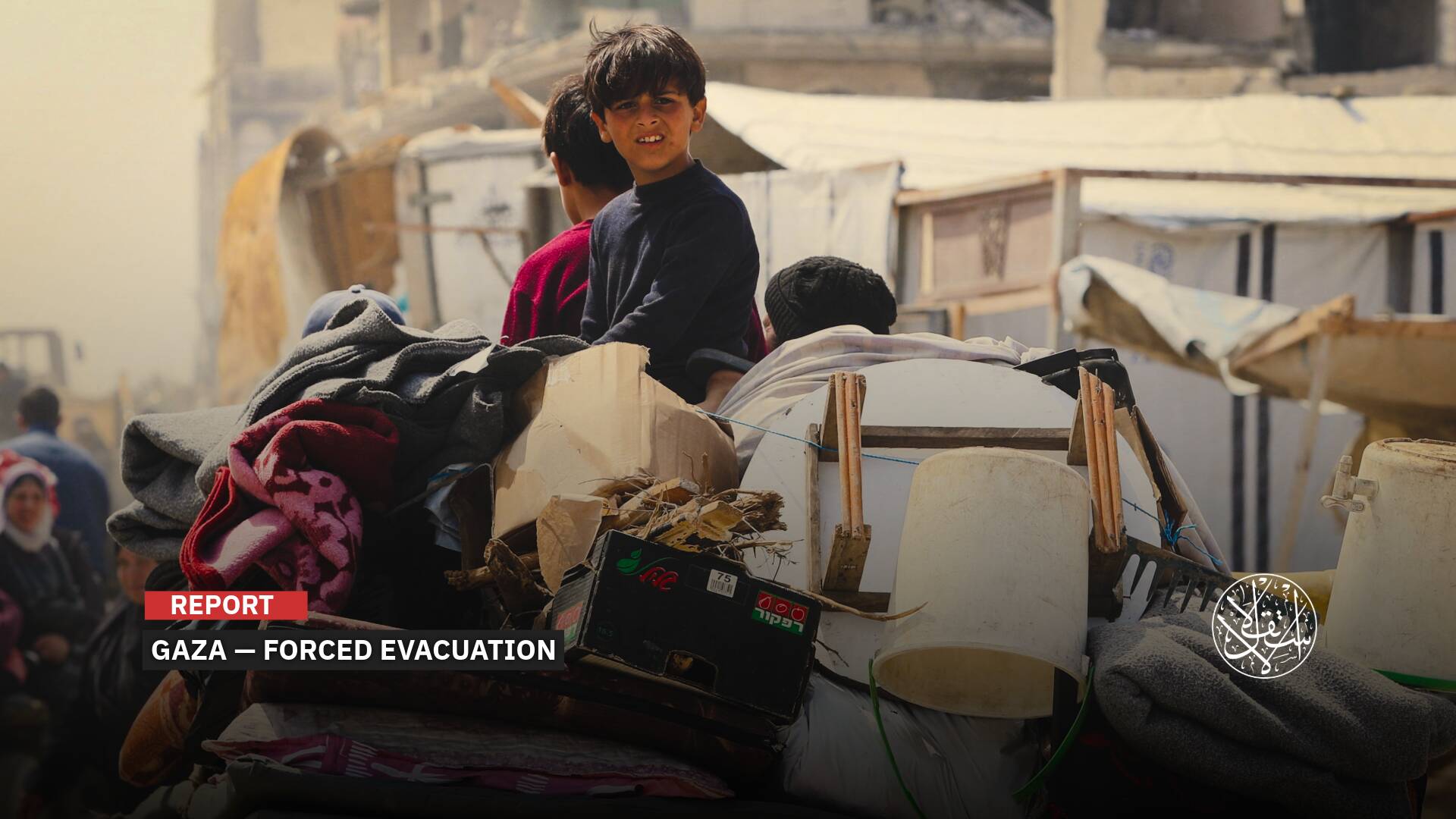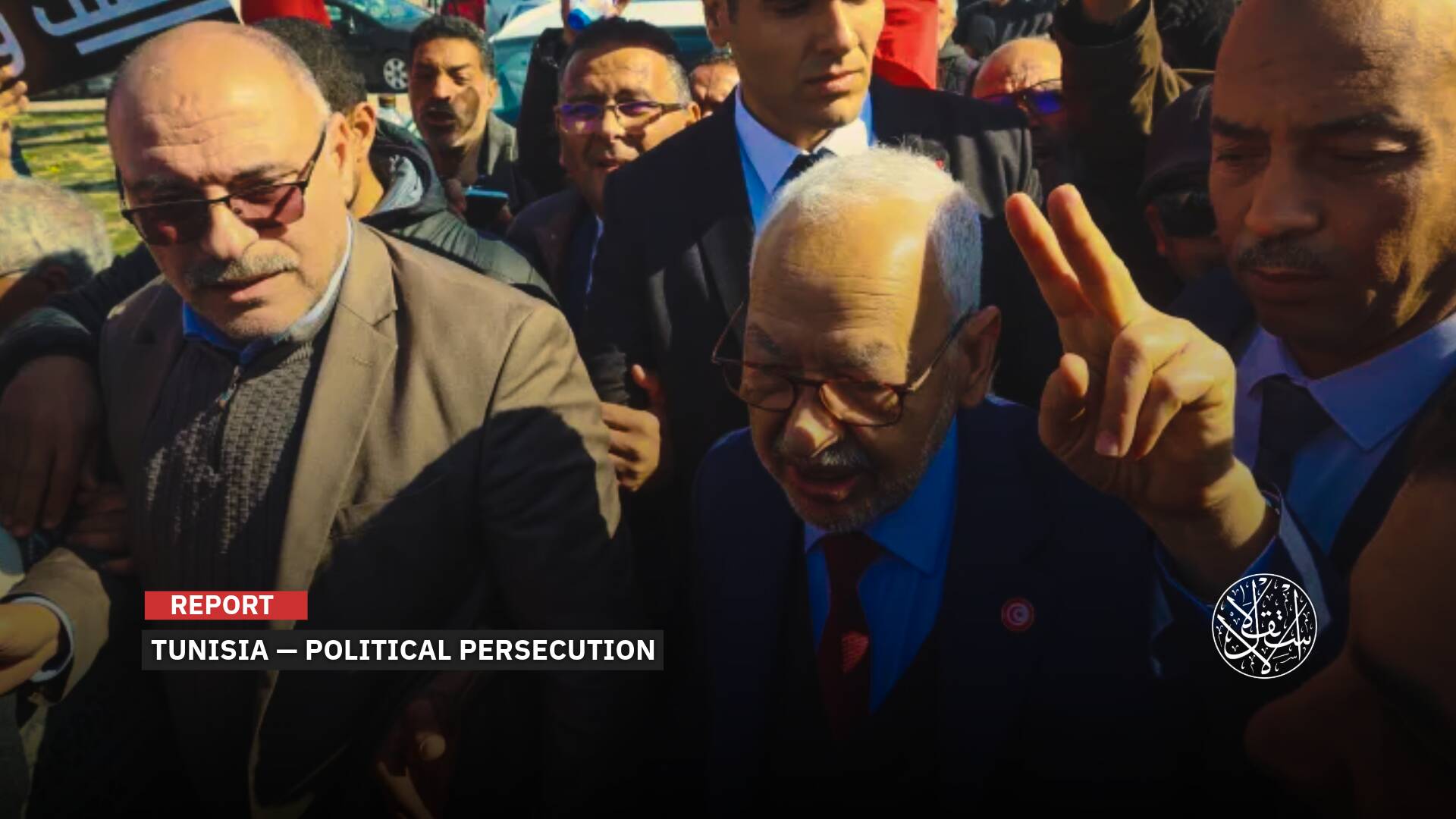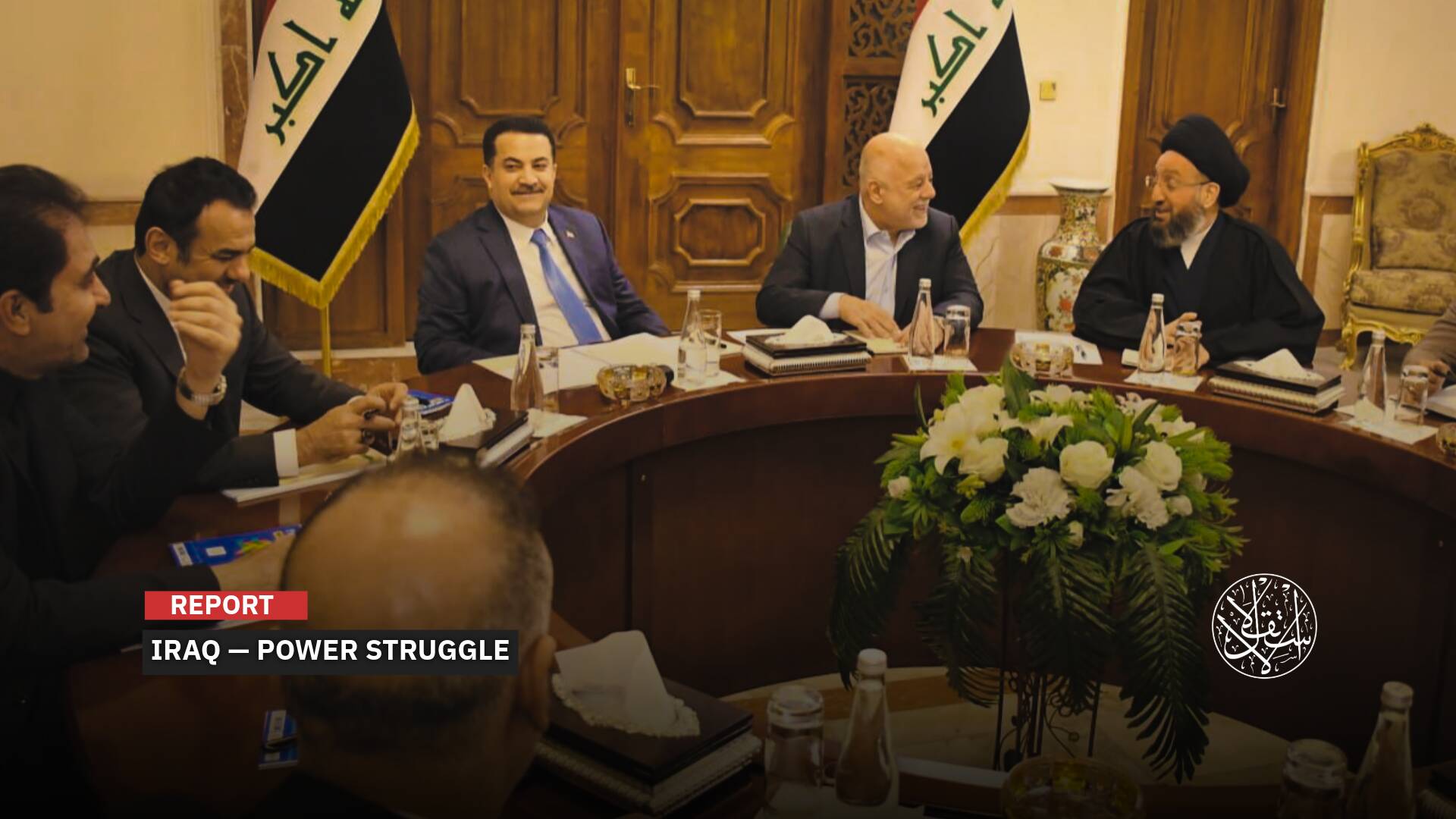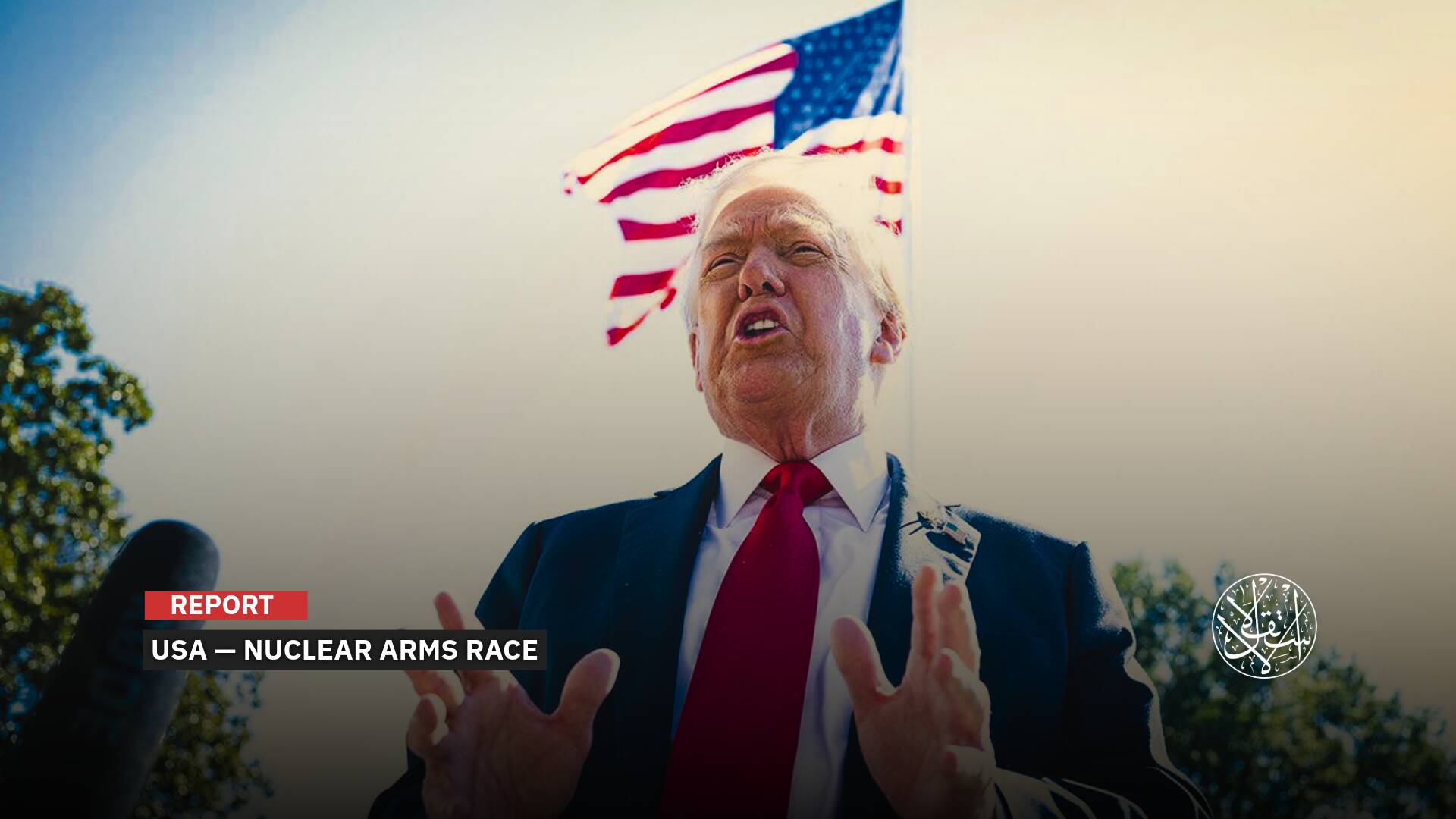By Blocking Shekel-to-Dollar Conversions, Israeli Occupation Tightens Its Grip on the Palestinian Economy
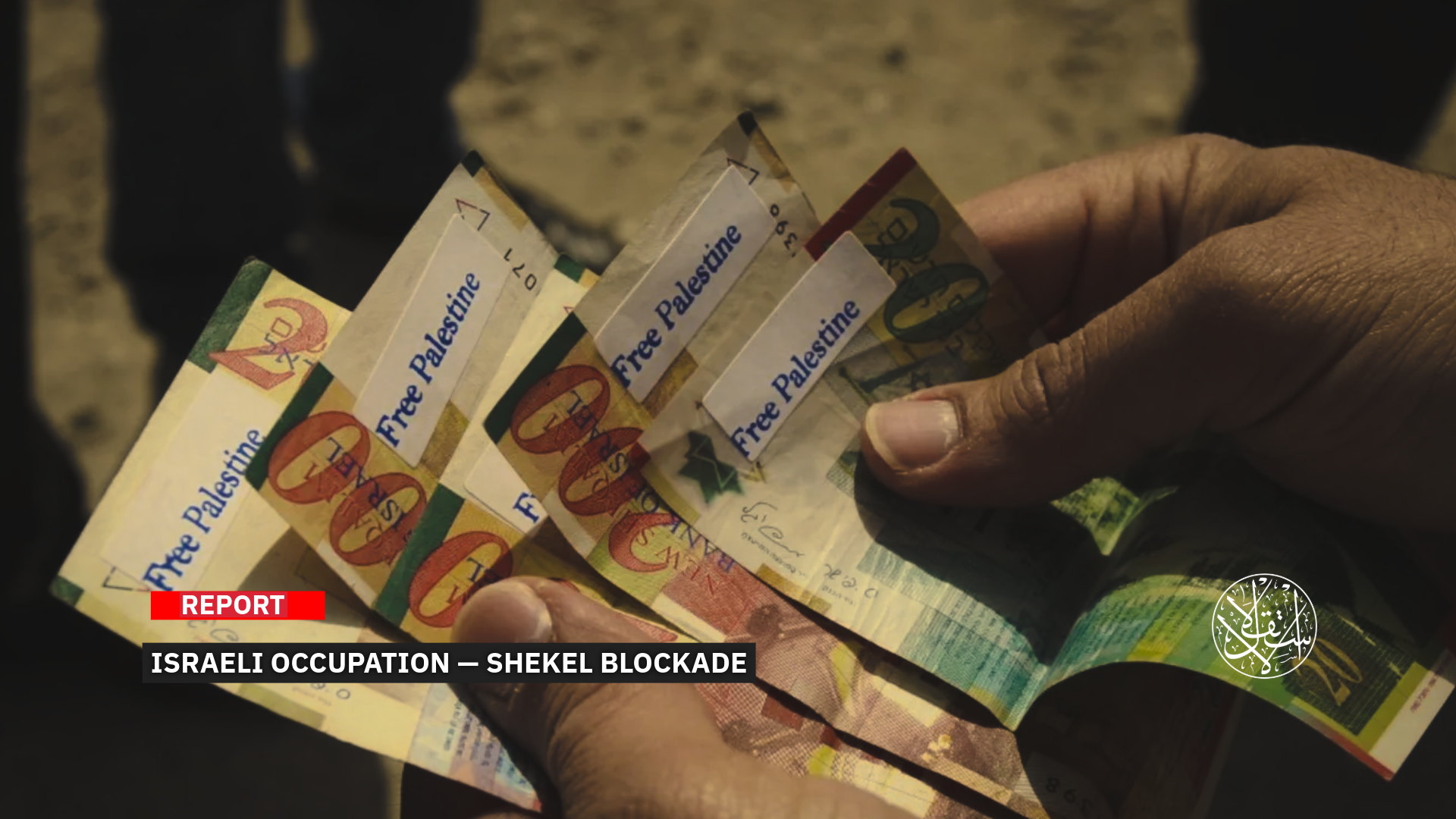
A grim outlook for the Palestinian Authority’s finances.
The Palestinian Authority’s economy has reached an unprecedented and catastrophic crossroads, the most severe since its establishment in 1994.
Ramallah once dared to dream of prosperity, built on the fragile hope of independence and an end to the Israeli occupation that began in 1967.
But the reality unfolding on the ground points in a starkly different direction, towards total collapse and the formal burial of a dream the world once witnessed when Israelis and Palestinians signed their first peace accord in Oslo.
Despite providing security coordination for the Israeli Occupation Forces, the siege imposed by "Israel" on the Ramallah-based Palestinian Authority has gone far beyond withholding 3 billion dollars in tax revenues.
It has extended to blocking the PA’s ability to convert shekels into dollars, flooding the market with a surplus of currency that has lost its value and paralyzed the economy.
This unprecedented shekel surplus, now commonly referred to as “the mountain of shekels,” has pushed the Palestinian financial system into one of the gravest crises in its history.
The banking sector has been severely disrupted, commercial activity has been throttled, and the crisis has deepened further with restrictions on Palestinian laborers working in the Israeli market.
Palestinian experts and researchers argue that while the crisis may appear financial and technical on the surface, its roots are deeply political.
The refusal of Israeli banks to accept shekels comes alongside the occupation’s ongoing freeze of Palestinian tax revenues and a sharp escalation in political tensions.
They see the ruling far-right Israeli government's campaign against the Palestinian Authority, particularly in the wake of the Operation al-Aqsa Flood, as part of a broader strategy.
Political and economic pressure has intensified, with the economy increasingly weaponized to destabilize and disorient the Palestinian leadership.
The Pile of Shekels
The crisis surrounding the Israeli currency, the shekel, has been steadily escalating in the Palestinian territories since 2022, though its roots lie in long-standing occupation policies and financial disputes between the two sides.
Under the terms of the 1993 Oslo Accords and the subsequent Paris Protocol that governs economic relations between "Tel Aviv" and Ramallah, it was agreed that Palestine would use the shekel as its primary currency, alongside the Jordanian dinar and the U.S. dollar.
Under the agreement, "Israel" was to collect tax revenues on behalf of the Palestinian Authority and transfer them monthly. But the occupation has since reneged on all such commitments.
The shekel, imposed as the main legal tender in Palestinian markets under the Paris Economic Protocol, is now choking the arteries of the Palestinian banking system, caught in a deep and growing financial stranglehold.
For the past six months, Israeli banks have refused to accept the surplus cash accumulating in their Palestinian counterparts, a clear violation of signed agreements, particularly the agreed quarterly absorption cap of 4.5 billion shekels.
As cash continues to pour in from Palestinian workers inside the occupied territories, along with retail trade and cash-heavy markets, more than 6.5 billion shekels have now piled up in local banks.
The sheer volume of unprocessed currency is threatening financial stability and paralyzing the ability of banks to function.
On June 24, 2025, the Palestinian Information Center summed up the crisis bluntly, “The shekel comes in every day but never goes out. Banks have shifted from engines of the economy to suffocating currency warehouses.”
A senior official at one local bank echoed the concern, saying, “We are unable to process these massive amounts that have become practically worthless.”
The shekel glut has severely disrupted financial transactions. Some shops and fuel stations have begun refusing to accept the currency altogether, as it has effectively become worthless paper, a direct result of "Israel’s" refusal to allow its conversion into dollars.
The Palestinian Authority, which provides countless services to the occupation and suppresses its own people to prevent any uprising, has responded to the crisis with little more than appeals to the international community to save it from collapse. It has threatened to cut public salaries and reduce ministry operations and staff hours.
Such measures will not harm "Israel" but will instead hurt ordinary Palestinians. Cuts will not affect the security forces that coordinate with "Israel" but will target civil servants and public employees.
In effect, the Authority appears to be solving both its own crisis and that of the occupation at the expense of the Palestinian people.
Transactions between Palestinian and Israeli banks facilitate around 50 billion shekels in commercial and banking operations annually, highlighting the near-total dependence of the Palestinian economy on "Israel."
According to both Palestinian and Israeli reports, 85 percent of Palestinian exports are destined for "Israel", while 55 percent of imports come from there.

A Significant Deficit
"Israel" often deducts sums from Palestinian tax revenues under various pretexts, such as payments to families of prisoners and martyrs or compensation to Israelis affected by attacks. At times, these transfers have been cut off entirely for extended periods.
In February 2022, "Israel" decided to withhold 600 million shekels from the tax revenues, claiming the funds were destined for families of Palestinian prisoners.
The Palestinian Authority refused to accept the deducted amount, triggering a significant financial deficit.
Palestinian banks have begun to suffer from a severe shortage of shekel liquidity, impacting salaries and daily transactions.
Yet "Israel" has continued to withhold tax revenues or deduct large portions of them, further deepening the economic crisis.
By 2024, the deficit had reached critical levels, forcing the Palestinian Authority to rely more heavily on the Jordanian dinar and the U.S. dollar.
Despite this shift, the problem persisted due to the shekel’s dominance in everyday economic life.
According to the Palestinian Monetary Authority, the budget deficit is expected to reach around 4.9 percent of the country’s GDP in 2025, with public debt climbing to approximately 69 percent of GDP.
The crisis has had severe consequences, including months-long delays in public sector salaries, payments reduced to just 70 percent, rising prices driven by currency shortages, and a collapse of trust in the Palestinian banking system. Popular pressure on the Authority to find alternative solutions has intensified.
Proposals include adopting other currencies or issuing a Palestinian currency, though the latter remains highly challenging due to Israeli control over crossings and the economy.
The Palestinian Authority has sought to ease the crisis by urging some institutions to adopt digital transfers and alternative currencies for up to 50 percent of transactions, alongside calls to strengthen the local economy and reduce dependence on the shekel. Yet political realities continue to obstruct progress.
According to Palestinian media estimates and international economic research bodies, the surplus shekels in the Palestinian banking system are believed to range between 6 and 8 billion shekels.
Palestinian banks complain they are unable to convert these funds into dollars or Jordanian dinars due to Israeli restrictions on transferring money out of the territories.
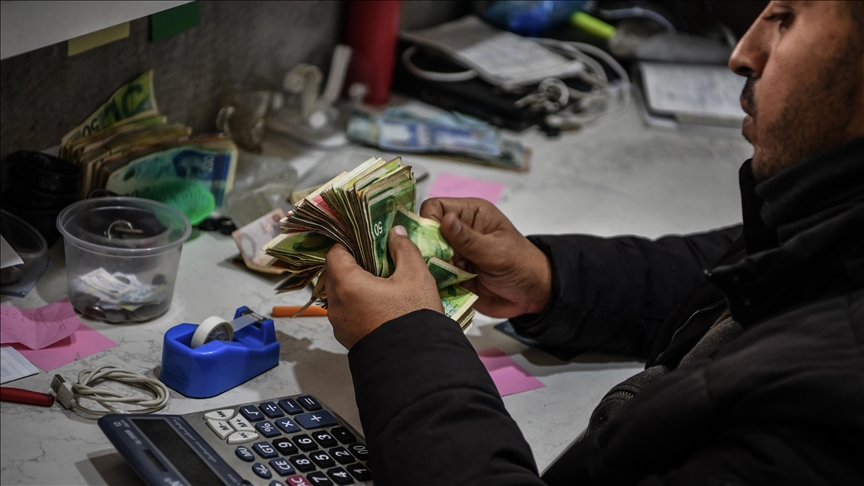
Economic Paralysis
A report published by the Israeli economic website Calcalist on July 12, 2025, described the crisis facing the Palestinian financial system as one of the most severe in its history, bringing the economy to a standstill.
It highlighted that the mountain of shekels that has piled up in recent months within the Palestinian banking system is paralyzing its operations, strangling commercial activity, and fueling economic unrest that has spread across the West Bank.
Senior officials within the Palestinian financial system have described the situation as a “crippling liquidity crisis,” with legal tender effectively becoming a currency that can no longer be circulated.
Haaretz reports that "Israel’s" refusal to transfer tax revenues exacerbates the Palestinian Authority’s crisis, calling it one of the “severe, unprecedented challenges” imposed by the occupation alongside the shekel issue.
Many Palestinians blame "Israel", viewing the measures as part of a punitive and suffocating policy that has intensified since the Operation al-Aqsa Flood.
This has left shop owners, service providers, and businesspeople unable to convert shekels into dollars or Jordanian dinars for importing equipment and goods, thereby bringing their businesses to a halt.
Businesses are unable to purchase goods or pay suppliers because banks refuse to accept the shekels they hold. In some cases, even commercial partners reject the currency.
As a result, business owners are forced to turn to the black market to convert shekels into dollars or dinars, paying steep commissions ranging from 10 to 12 percent.
The crisis has led some traders to refuse payments in shekels altogether, fearing they will be unable to deposit the cash.
A survey conducted in Bethlehem found that 63 percent of business owners reported a direct impact on their operations due to the crisis.
The repercussions of this crisis have intensified, reaching the broader economy and hampering growth.
Small and medium-sized enterprises, which form the backbone of the Palestinian economy, find themselves unable to replenish their inventories or operate credit lines.
This situation has also taken a toll on the labor market, with many companies forced to reduce working hours or lay off employees.
This is not due to a drop in demand but rather the inability to pay wages or convert the shekel into other currencies.
Inflation has begun to rise, the black market is expanding, and counterfeit U.S. dollars and dinars are becoming increasingly widespread.
These developments have contributed to a surge in the Palestinian Authority’s total debt, which reached around 10.2 billion dollars in May 2025.
This figure includes both external and internal debts, with three billion dollars owed to the pension fund, 1.5 billion to the private sector, and 1.47 billion in unpaid salaries.
Normalization Countries
Voices in the West Bank have begun to propose alternative routes that bypass "Israel", such as cooperation with Arab states that have normalized relations, particularly Jordan, Egypt, and the United Arab Emirates.
The aim is to find solutions for financial settlement and to finance trade that does not depend on "Israel". However, so far, there has been no response from these Arab countries.
Ideas put forward include transferring shekels from Palestinian Authority areas to banks in Jordan, the UAE, or Egypt.
These banks would manage intermediary accounts or convert the currency into dollars at an agreed exchange rate.
Traders and economists have also suggested that suppliers in Jordan send goods directly to Palestinian Authority areas and receive payment through a Jordanian bank, mediated by the Authority, thus avoiding involvement of the Israeli financial system.
Another proposal involves establishing Arab-backed funds to provide loans or guarantees to finance commercial activity, aiming to bridge cash flow gaps in shekel liquidity.
Yet none of these ideas have been formally explored, nor have the Arab states involved in normalization shown any interest.
One of the more strongly advocated suggestions has been for the Palestinian Authority to issue its own currency, given its recognition by the United Nations and several countries, as an alternative means of payment.
However, experts warn that issuing a Palestinian currency is a complex, costly, and problematic endeavor, both economically and politically.
It remains difficult to achieve at present due to the Israeli blockade and the Palestinians’ lack of foreign currency reserves needed to back a new national currency.
Another challenge to switching to the dollar or the dinar instead of the shekel is that "Israel" would view the removal of the shekel’s legal tender status in the Palestinian market as a fundamental breach of the Paris Protocol, which governs economic relations between the occupation and the Authority. This comes despite "Israel" effectively sidelining the Oslo Accords.
Even if the Palestinian Authority were to pursue this route, Palestinians would face significant challenges. Currently, around 60 percent of transactions are conducted in shekels.
Those Palestinians who receive their salaries in shekels from "Israel" would find themselves in a difficult position, as their money would no longer be accepted for purchases.
Telepolis argued in a report published at the end of June 2025 that the Authority’s attempt to break free from the shekel is important for reducing economic dependence on "Israel", but it remains a difficult solution.
Electronic transactions in Palestinian territories are also linked to the occupation, with shekel transfers routed through Israeli banks.

Political Crisis
A report from the French site Media Line on June 27, 2025 suggests that the shekel surplus crisis is not purely economic but deeply political.
It points out that Israeli policy and the ongoing war on Gaza have significantly impacted the Palestinian Authority’s current financial crisis.
The report highlights that Palestinian officials and economists have many strategies in mind to improve the Palestinian economy, but ultimately it is "Israel" that holds the final say.
This crisis is not simply the result of recent political events in the occupied territories but stems from years of cumulative measures imposed by the occupation authorities, leaving the Palestinian Authority unable to manage its economy independently.
According to Media Line, the Palestinian Authority implemented temporary relief measures to bolster its economic standing and financial capacity.
However, these efforts hit a dead end following a series of decisions made by the hardline right-wing Israeli finance minister Bezalel Smotrich.
In April 2024, Smotrich ordered the withholding of tax revenues collected from all commercial transactions between Palestinians and Israelis instead of transferring them to the Palestinian Authority as previously agreed.
This move exacerbated the Palestinian Authority’s financial crisis, forcing it to pay only 50 percent of public sector salaries, down from 70 percent before "Israel" began gradually seizing Palestinian funds after the attacks of October 7, 2023.
"Israel" has also suspended banking agreements with Ramallah, putting the Palestinian financial system at risk.
The inability to transfer shekel surpluses and the restrictions on cross-border banking operations threaten to trigger a severe liquidity crisis.
If this issue is not addressed seriously, the local market could face a banking crisis that endangers economic stability for both individuals and businesses, according to Media Line.
The latest World Bank report from the first quarter of 2025 paints a bleak picture of the Palestinian Authority’s financial situation, warning of dire economic consequences ahead.
Sources
- Palestinians blame shekel surplus for weighing down West Bank economy
- Palestinian Authority in Crisis Over Israel's Refusal to Transfer Tax Revenue
- How Israeli Policy and the War in Gaza Affect the PA’s Looming Financial Crisis
- Shekel Surplus Accumulation: A Form of Deliberate Cash Strangulation Imposed by Israel on the Palestinian Economy [Arabic]



